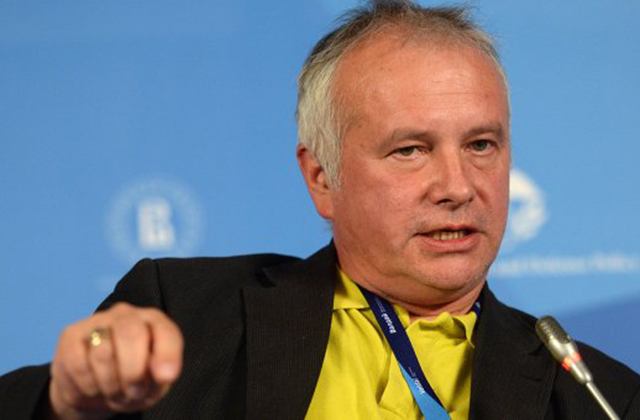“Germany will attempt to record a result in the forthcoming ministerial meeting in Hamburg”

The meeting between OSCE MG co-chairs and Foreign Ministers of Armenian and Azerbaijan within the OSCE 23rd Council Meeting to be launched in Germany’s Hamburg on December 8-9, still continues to intrigue.
Azerbaijani FM Elmar Mammadyarov recently stated that Azerbaijan agrees to the meeting by 2+3 format, planned in Hamburg. Armenian FM Edward Nalbandian, not excluding it, stated that there is no such an agreement. Moreover, earlier Nalbandian mentioned that a statement was heard from Azerbaijan, that they’re ready to take part in that meeting, however, these statements contain contradictions.
On the one hand, Azerbaijan states that it’s ready to participate in the meeting initiated by the co-chairs, on the other hand, it makes statements, which contradict approaches of the co-chairs, they express maximalist approaches and state that settlement on NK issue may be based only on one principle of international law.
He stressed that Baku should orientate whether it wants to continue negotiations or not. “Otherwise participation in these meetings is becoming imitation by their side. One of the proofs was their participation in Vienna and St. Petersburg meetings. They took part, but what did it give? Until now they refuse to implement the reached agreement, they do their best not bring agreements into life,” he said.
Alexander Rahr, German political scientist, member of Russian Valdai Club, giving assessment to German’s activity within OSCE and its productivity for NK conflict peaceful settlement, told “168 Hours” that Germany is planning to strengthen OSCE, solve conflicts of Eastern Europe, have its positive contribution to NK conflict settlement negotiations as well.
“However, this year’s developments in all conflict zones showed that these programs of Germany haven’t been brought into life, as the main issue hasn’t been settled—providing proper socialization with Russia. The sides failed to launch productive dialogue around main issues, external discordances in their turn, provide the parties to the conflict the opportunity to strengthen their positions, as a result of which the process is appearing at a deadlock, leading powers are “tired” of that situation as well, OSCE institutes are being discredited, and all this for the reason that for decades leading powers aren’t able to come to an agreement in crucial issues and provide a stable environment.
Germany failed this year as well, although Germany, represented by Merkel and Steinmeier, showed some activeness, however, obviously, it wasn’t enough.
We should be able to call things by their names, warn Turkey right after the April war, when Turkish president was stating on supporting Azerbaijan, however, Europe’s stability today greatly depends on Turkey as well, which utterly sends threats to European countries. Karabakh conflict outbreak, of course, bothers EU, however, Turkey’s threats aren’t worth less attention. Issues are multilayer, which are conditioned by Europe’s internal crisis and external relations,” German analyst said.
According to the latter, the April war showed that NK conflict isn’t frozen, and some steps are necessary to settle or freeze the situation. “However, as I said, there were issues, which were more influential,” Rahr said.
German analyst stressed, that however, Germany attempts to fight until the “last breath,” attempting to extract a meeting in Hamburg for the parties to the conflict through OSCE MG co-chairs, by that suspending its co-chairmanship on a positive note.
“I don’t consider Germany’s co-chairmanship completely lost, as two presidential meetings have been launched in that period, proposals, security mechanisms have been submitted, around which works still continue in OSCE. If a meeting is launched in Hamburg, maybe it’ll be possible to come to an agreement around these proposals,” Rahr said.
By Araks Martirosyan

























